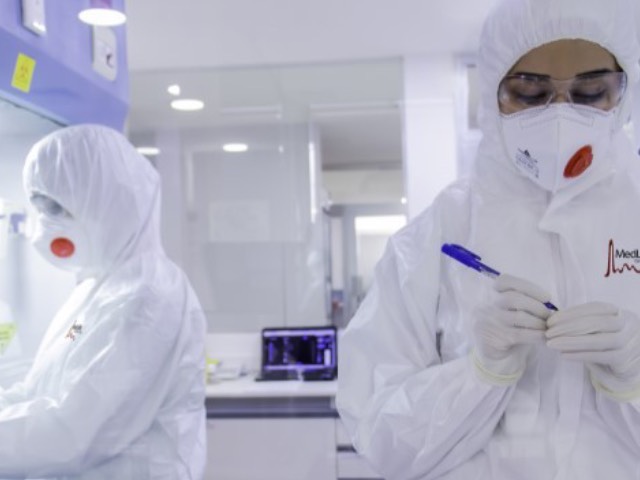When the coronavirus hit Italy earlier this year, people promised not to succumb to the threat. They chose “Ce la faremo!” (“We will make it!”) as their slogan ─ a sentiment that also has a strong resonance in the EBRD’s southern and eastern Mediterranean (SEMED) region.
The economies of this region, which stretches from Morocco to Lebanon, have their share of the crisis. In addition to the loss of life, the economic damage is sizeable. Tourism revenue has dried up, most production has ground to a halt and trade has been badly affected.
Governments have responded swiftly and decisively. Emergency measures have been put in place to prevent the spread of the virus, while massive state interventions aim to protect economies from collapse. Help has been promised to the poorest and most vulnerable members of society.
Across many sectors of the economy, solidarity has also been evident as companies have switched their production to support the health sector, for instance, by manufacturing masks, gowns and other protective equipment or by purchasing these items and donating them. A number of firms supported by the EBRD with finance or advisory services have joined the effort.
In Morocco, Lamatem, a key producer of disposable items made from non-woven medical textiles, has adopted a business continuity plan to maintain and increase production while respecting quality, health and safety standards. The company has stepped up production to support hospitals with gowns and established a new production line for masks.
Also in Morocco, Dolidol, a mattress factory, started producing facemasks at the beginning of April. The company now produces 2,000 masks a day, which are distributed free to local residents, social associations, company staff and business partners.
In Tunisia, Enova Robotics, a start-up benefiting from the EBRD’s Advice for Small Business support, has developed robots that help the Ministry of the Interior to implement the lockdown in Tunis. The so-called ‘P-Guard’ robot patrols the streets and asks curfew breakers to stay home. The company will launch a new robot called Veasense to provide telemedicine, telepresence and monitoring for people who are in self-isolation.
In Egypt, Youspital, a booking platform for discounted healthcare that targets underserved or uninsured citizens, has launched a free hotline for medical consultations on Covid-19, as well as home visits for laboratory tests that will help reduce the spread of the disease. Youspital joined the EBRD Star Venture programme in February 2020 and has been online for the past 10 months, with a presence in more than 1,400 locations across 25 of the 27 Egyptian governorates.
El Sewedy Electric, one of the largest cable and electrical product manufacturers in the Middle East and Africa, has donated medical supplies to the Egyptian Ministry of Health. The supplies include 1.5 million surgical masks, 100,000 medical N95 masks, 20,000 protective medical suits and 100,000 medical hand protectors. Since 2017, the company has benefited from EBRD loans providing working capital. El Sewedy Electric has also partnered with the Bank in projects to address skills mismatches through the firm’s Technical Academy.
Following the spread of the virus to Jordan, the Greater Amman Municipality (GAM) had to clean the city as a matter of urgency, including through the collection of solid waste, from pick up to drop off at the waste transfer station. The municipality also cleaned many buildings and areas where people infected with the virus live.
This work was performed with the help of a fleet of vehicles financed in 2018 by the EBRD and supported by a grant from the UK’s Department for International Development. For instance, a vehicle used to sweep Amman’s streets is now a sanitising sweeper that helps keep the city clean. This is a tough job: Amman has more than two million residents and covers some 1,680 square kilometres.
MedLabs, a leading network of private diagnostic medical laboratories in the region, has responded to a call from Jordan’s Ministry of Health to help plan mass tests while keeping people safely at home. With 44 branches covering all of Jordan’s governorates, MedLabs has mobilised medical technologists, a logistics team, cars and volunteers at an e-call centre. Teams in personal protective equipment and provided with testing kits have embarked on home testing to collect samples. Over a four-week period they have tested nearly 4,000 samples.
Meanwhile, small businesses in Lebanon have also been working hard to overcome the Covid-19 crisis. Kamkalima is an Arabic educational platform for learning and teaching in schools, providing classrooms with online tools, resources and support. Since the outbreak of the crisis, Kamkalima has provided free memberships until September 2020 to schools and students. To date, the platform has registered 10,000 new students from the Middle East and North Africa.
As the economic crisis brought Lebanon to a standstill, Blessing, a gift and catering company for special events, launched the ‘Get a Blessing, Give a Blessing’ initiative in April, together with Beit al Baraka, a Lebanese NGO that supports retirees and families in need. For every gift that Blessing sells during the month of Ramadan, it is donating a food box to a family in need.
In the West Bank and Gaza, the Palestinian mattress manufacturer Zoom Bags has changed its production line to medical coveralls, which the health sector needs urgently. The coveralls use antibacterial, fire-resistant and waterproof components that were previously used to make children’s mattresses. The supplies are packaged individually in sanitised, antibacterial waterproof bags before distribution. Since March, the company has produced around 1,200 coveralls, with its 30 employees working hard in shifts to provide much-needed support.
Responding to the coronavirus crisis, the EBRD has rapidly stepped up support for its regions, launching a swift response and recovery programme to help the 38 emerging economies where it invests. The Bank now expects to dedicate the entirety of its activities to combating the economic impact of the crisis and stands ready to provide support worth €21 billion over the 2020-21 period.









































